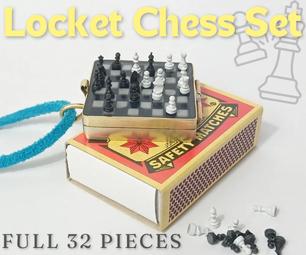Introduction: Recycle Denim: Floor Mat From Waistbands and Inseams
This comfy floor mat is made from recycled waistbands, hem cuffs, and inseams from old jeans. These are often the wasted scraps left after other projects with recycled denim. To see how to efficiently harvest these materials from a pair old pants see this instructable:
https://www.instructables.com/id/Recycle-DenimJeans-into-Reusable-parts-with-no-wa/
This mat is great to take outside as a sitting mat, as a meditation mat, or (with added carpet tape or rubberized backing) an indoor rug. It is thick and dense, making it comfortable on hard ground, and extra durable.
https://www.instructables.com/id/Recycle-DenimJeans-into-Reusable-parts-with-no-wa/
This mat is great to take outside as a sitting mat, as a meditation mat, or (with added carpet tape or rubberized backing) an indoor rug. It is thick and dense, making it comfortable on hard ground, and extra durable.
Step 1: Materials
You will Need:
An assortment of waistbands, inseams, and cuffs from old jeans.
For this mat I used eight waistbands, 2 1" wide hem cuffs, and eight inseams.
Leave tags on the waistbands to add an element of design.
Sewing Shears
Sewing Machine with a #16 needle (ofter labeled "leather")
Cotton Thread (use a contrasting color if you like for added aesthetic appeal)
Basic sewing skills
optional:
3"x4" patch of cotton muslin
permanent black fabric marker.
An assortment of waistbands, inseams, and cuffs from old jeans.
For this mat I used eight waistbands, 2 1" wide hem cuffs, and eight inseams.
Leave tags on the waistbands to add an element of design.
Sewing Shears
Sewing Machine with a #16 needle (ofter labeled "leather")
Cotton Thread (use a contrasting color if you like for added aesthetic appeal)
Basic sewing skills
optional:
3"x4" patch of cotton muslin
permanent black fabric marker.
Step 2: Arrange Peices
Lay the strips in the arrangement you want them for the mat. Line up the edges.
Pay attention to color, width variation, tag placement, to create a balanced and pleasing mat. Trim all pieces to the same length, I matched the length of the shortest waist band, about 32".
Be sure to trim away the buttons from the waist bands, as they are very uncomfortable to sit or stand on.
Save enough inseam material aside to edge the entire mat. I used both inseams from a pair of pink jeans to do this, for contrast and a splash of color. For a more colorful mat, You can dye your materials with standard fabric dye. I recommend dyeing pants prior to dismantling them. The dyeing process requires washing, which will heavily fray cut denim.
for directions on efficiently dismantling pants, see the instructable link in the intro.
Pay attention to color, width variation, tag placement, to create a balanced and pleasing mat. Trim all pieces to the same length, I matched the length of the shortest waist band, about 32".
Be sure to trim away the buttons from the waist bands, as they are very uncomfortable to sit or stand on.
Save enough inseam material aside to edge the entire mat. I used both inseams from a pair of pink jeans to do this, for contrast and a splash of color. For a more colorful mat, You can dye your materials with standard fabric dye. I recommend dyeing pants prior to dismantling them. The dyeing process requires washing, which will heavily fray cut denim.
for directions on efficiently dismantling pants, see the instructable link in the intro.
Step 3: Sew
Sew the strips together using a zig-zag stitch, where the needle presses through one strip at a time, alternating. Work from right to left (adding strips to the left hand side) for ease of stitching
A number 16 needle will go through four layers of denim (the thickness of an inseam or waist band) but not much more without an industrial machine. The trick to this mat is stitching in a way that draws the pieces together tightly, without overlapping them, allowing you to work a very dense material with a standard sewing machine.
Be careful to feed the strips through the machine so that the needle is pushing through inside the stitching already present on the seam or waistband. The fabric outside this seam will fray away quickly and your strips will not hold together.
Go slowly on your standard machine, you are asking a lot out of it and tugging or forcing the fabric will cause the needle to jam the faceplate and break. This is bad for the mechanism as well as destroying the needle and scratching the face plate.
A number 16 needle will go through four layers of denim (the thickness of an inseam or waist band) but not much more without an industrial machine. The trick to this mat is stitching in a way that draws the pieces together tightly, without overlapping them, allowing you to work a very dense material with a standard sewing machine.
Be careful to feed the strips through the machine so that the needle is pushing through inside the stitching already present on the seam or waistband. The fabric outside this seam will fray away quickly and your strips will not hold together.
Go slowly on your standard machine, you are asking a lot out of it and tugging or forcing the fabric will cause the needle to jam the faceplate and break. This is bad for the mechanism as well as destroying the needle and scratching the face plate.
Step 4: Trim
add trim to your mat to increase durability. The short sides of your mat are made up of un-stitched denim, which will fray without reinforcement.
Tie off and trim all the thread ends from sewing the strips together. Trim away any uneven edges with your sewing shears.
Begin by sewing trim along the left side of the mat in the same way you added the strips. When you get to the end of your first long side, drop the needle, lift your machine foot, and rotate the mat to begin adding trim down the short side. Line up the next piece of trim with the edge of the trim you just added, to make an even rectangle. Sew back and forth over the two trim pieces several times to join them securely to each other. Continue sewing trim down the short side.
Add trim and join corners in the same fashion, working around the mat clockwise. If you need to join two shorter pieces of trim on the same side, rotate the mat and sew over the joint several times before rotating back and continuing along the side.
When you reach the beginning of your first piece of trim, join it to the rest of the trim. Sew your zig zag stitch all the way around the mat a second time. Pay close attention the needle placement to ensure all pieces are being joined securely to the trim. Because you are working with fray-able ends, it is important to make the second, reinforcing stitch around the mat.
Tie off and trim all the thread ends from sewing the strips together. Trim away any uneven edges with your sewing shears.
Begin by sewing trim along the left side of the mat in the same way you added the strips. When you get to the end of your first long side, drop the needle, lift your machine foot, and rotate the mat to begin adding trim down the short side. Line up the next piece of trim with the edge of the trim you just added, to make an even rectangle. Sew back and forth over the two trim pieces several times to join them securely to each other. Continue sewing trim down the short side.
Add trim and join corners in the same fashion, working around the mat clockwise. If you need to join two shorter pieces of trim on the same side, rotate the mat and sew over the joint several times before rotating back and continuing along the side.
When you reach the beginning of your first piece of trim, join it to the rest of the trim. Sew your zig zag stitch all the way around the mat a second time. Pay close attention the needle placement to ensure all pieces are being joined securely to the trim. Because you are working with fray-able ends, it is important to make the second, reinforcing stitch around the mat.
Step 5: Finish and Customize
To finish you mat tie and snip all thread ends from trimming, as well as any denim fibers that are sticking out at odd angles. Press the entire mat flat with an iron set to cotton (it is safe to use your hottest setting, and may be necessary for this thick of a material)
The mat I made was a bridal shower gift for my best friend, so I added a custom fabric patch. To do this, write or draw your customization on a piece of cotton muslin (or similar light, stiff fabric) with a permanent fabric marker. Leave at least an inch all the way around your message. Fold and press edges inward with a 3/4" fold. Top stitch to the mat.
Enjoy this lovely reminder of how creativity breeds sustainability.
The mat I made was a bridal shower gift for my best friend, so I added a custom fabric patch. To do this, write or draw your customization on a piece of cotton muslin (or similar light, stiff fabric) with a permanent fabric marker. Leave at least an inch all the way around your message. Fold and press edges inward with a 3/4" fold. Top stitch to the mat.
Enjoy this lovely reminder of how creativity breeds sustainability.









